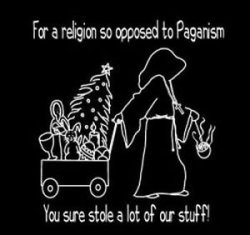In 1959, Johann Knobloch proposed a different etymology.
[11] Writing of "the relationship between dawn and springtime, between night - or early morning - and daybreak in the Christian Eastern rituals of the East and the West",
[12] he proposed that the
Old High German name for the feast,
Ōst(a)rūn, as a Gallo-Frankish coinage,
[13] drawn from
Latin albae in the designation of Easter Week as
hebdomada in albis and in the phrase
albae (paschales).
[14] The Germanic word is connected with an Indoeuropean word for the dawn (
uşás-,
Avestan ušab-, Greek ἠώς, Latin
aurora, Lithuanian
aušrà, Latvian
àustra, Old Church Slavonic
za ustra), and Knobloch links this derivation with the word
albae in the phrases in Church Latin, with which are associated the French and Italian words for the dawn, and connected it with the dawn service of the
Easter Vigil in which those to be baptized faced east when pronouncing their profession of faith.
[14][15][16][17] Jürgen Udolph, himself a proponent of a different view, says that, although the theory that the words "Easter" and "Ostern" come from the name of a Germanic goddess reconstructed by Jacob Grimm as Ostara is the most widespread at a popular level, Knobloch's proposal enjoys most support,
[14]

